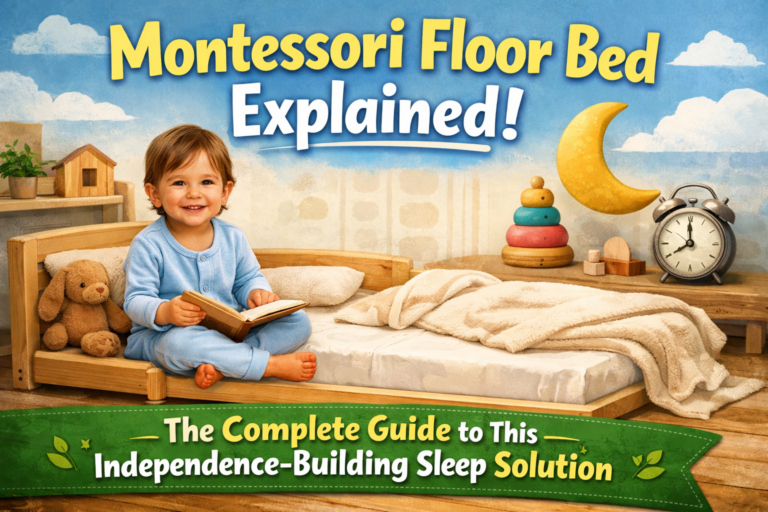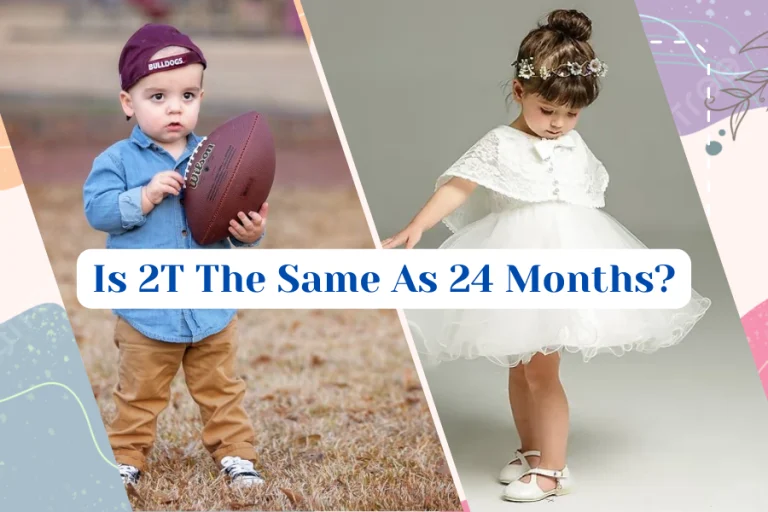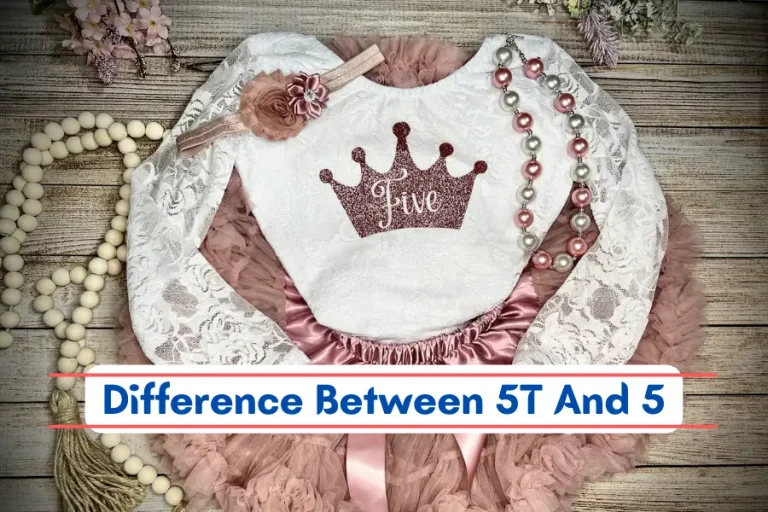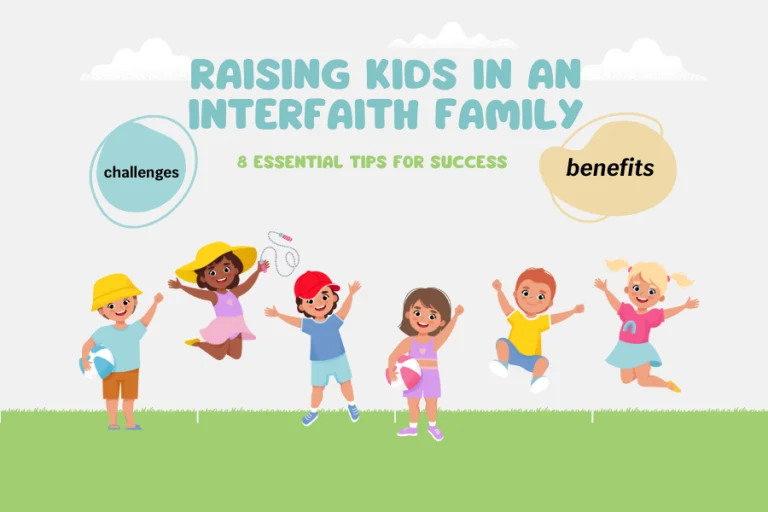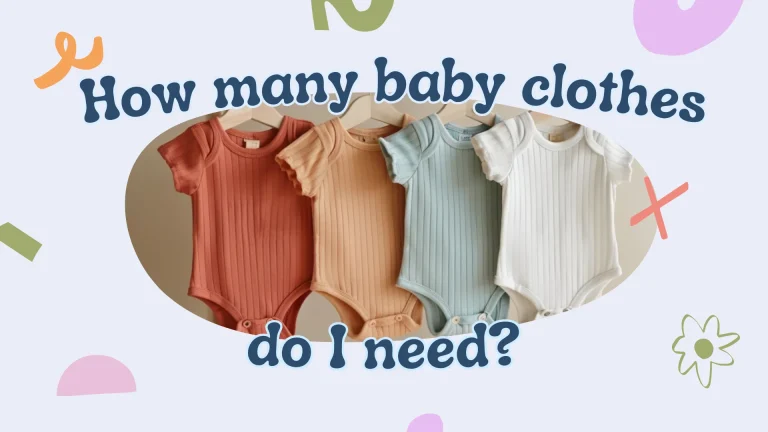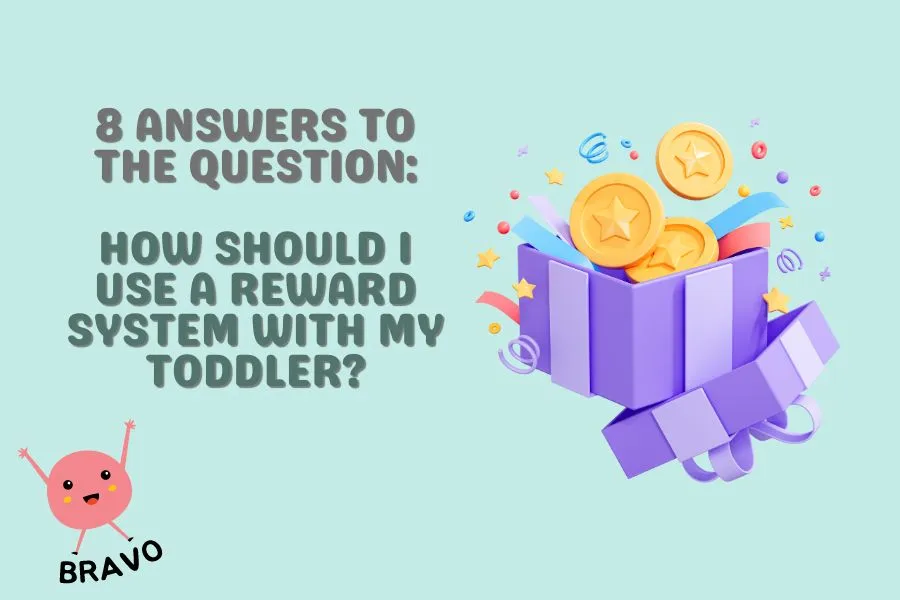
Parents often think about a reward system when teaching kids, aiming to encourage them to behave in the right way. Is reward an effective way to change and encourage their children?
There are many disagreements about the reward system for kids, saying that rewards make them easy to be manipulated and too focused on materials. It is true that we will not be recommended to exacerbate all things done by kids. But using incentives in the right ways can enhance behavior of our children and ameliorate the affection among family members.
Why are rewards necessary to your toddler?
Reasonable rewards will not make your kid become the “slaver” of materials, but encourage them to be better in many ways.
Rewards encourage good behaviors
Reward systems lead your kid to get used to their newly taught behavior, then this behavior will become their habit. When that action is a part of their life, it comes naturally, and no rewards are needed anymore.
Rewards improve self-esteem
When your kids absorb too much of “no”, “stop”, “quit”, “keep silent”, they tend to blame themselves and their naive mental health is negatively impacted. But when being rewarded, kids know that they have done well, and they deserve to be proud of themselves.
Rewards reinforce relationship between parents and kids
It is miserable if kids think about their parents as “arbitrary”, “demanding”, “unapproachable”. It does not mean that you must meet all of their requirements, even unreasonable ones. But rewards for their good stuff is a praise to keep their motivation. Your children must be happy because of their supportive and gentle parents.
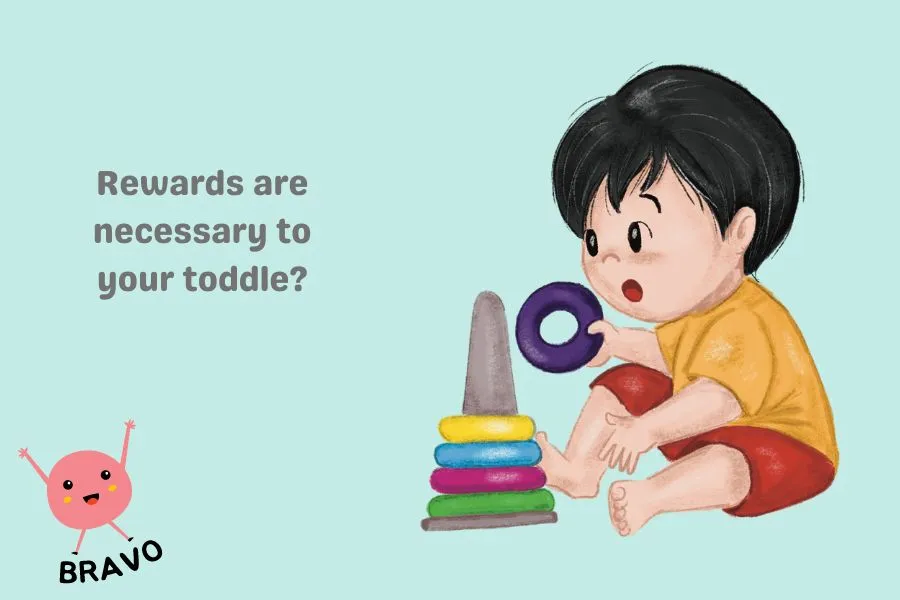
Choosing Age-Appropriate Rewards for Your Toddler
Different ages respond to different types of rewards. Matching rewards to your toddler’s developmental stage makes the system more effective and meaningful.
For younger toddlers (18 months – 2 years): Keep rewards simple and immediate. Stickers, high-fives, clapping together, or a special song work wonderfully. At this age, toddlers understand concrete, tangible rewards better than abstract concepts. A smiley face stamp on their hand or choosing which book to read at bedtime can feel like a huge achievement.
For older toddlers (2-3 years): They can handle slightly delayed rewards and understand simple reward charts. Star charts where they collect stars for tasks like using the potty or putting toys away become exciting. Small privileges like picking the next activity, an extra story at bedtime, or helping cook dinner make excellent rewards. They’re developing independence and love feeling like a “big kid.”
Non-material rewards that work at any age: Extra cuddle time, playing their favorite game together, a dance party in the living room, or a special outing to the park. These experiences create positive associations without relying on physical objects. They also strengthen your bond while reinforcing good behavior, making them doubly valuable.
8 Strategies For An Effective Rewards System For Toddler
Effective reward systems require strategies, and below are some suggestions for you.
1. Focus on the endeavor of kids
Sometimes your kids have an idea of doing a good thing, but they fail in some first trial. For example, your kid wants to bring you a cup of water, but unfortunately, she slips on the floor and spills all the water over. In this case, instead of making a fuss, you should praise her for her nice thoughts, then instruct her to be more careful next time. Your praise, the reward, makes her believe in that idea, and will try to do better.
2. Avoid delay
You should reward your kids right away when they deserve it. Otherwise, the power of incentives will be lower by time, as kids will think their behavior will not be worth it that much. And even your child will be likely to forget the reasons for that reward.
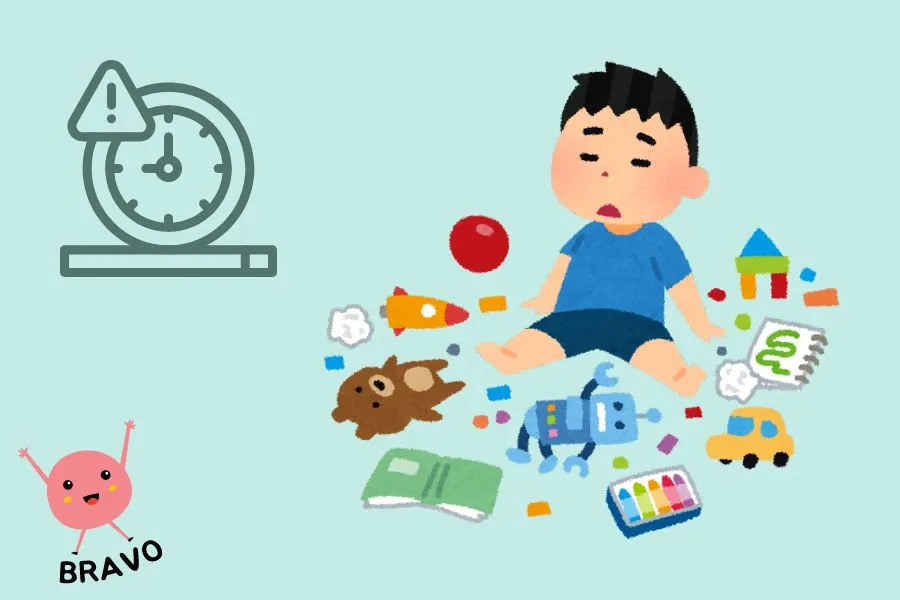
3. Choose suitable incentives
The rewards can be affordable, but make sure your kid will like it. For instance, it makes no sense if you buy a cooking toy set while your child only loves dolls. And sometimes, instead of being an object, rewards can be praise, 5 extra minutes watching TV, and a short ride around your neighbor.
Creating a reward menu
Consider developing a “reward menu” with your toddler’s input. This can include small rewards like choosing dinner, medium rewards like a trip to the playground, and bigger rewards like a new book after completing several tasks. Let your toddler help choose options they find motivating. When they have a say in what rewards are available, they become more invested in earning them.
Keep a balance between tangible items and experiences. While toys and treats have their place, experiences like family game night, helping bake cookies, or choosing the weekend activity often create more lasting positive memories and motivation.
4. Do not create too many difficulties
Your kids are still naive, so do not challenge them too hard. You should keep the goals very clear and specific for kids to know what to do to gain rewards. It should be very easy at first, then the difficulty will be escalated. Too tricky challenges can even disencourage your kids.
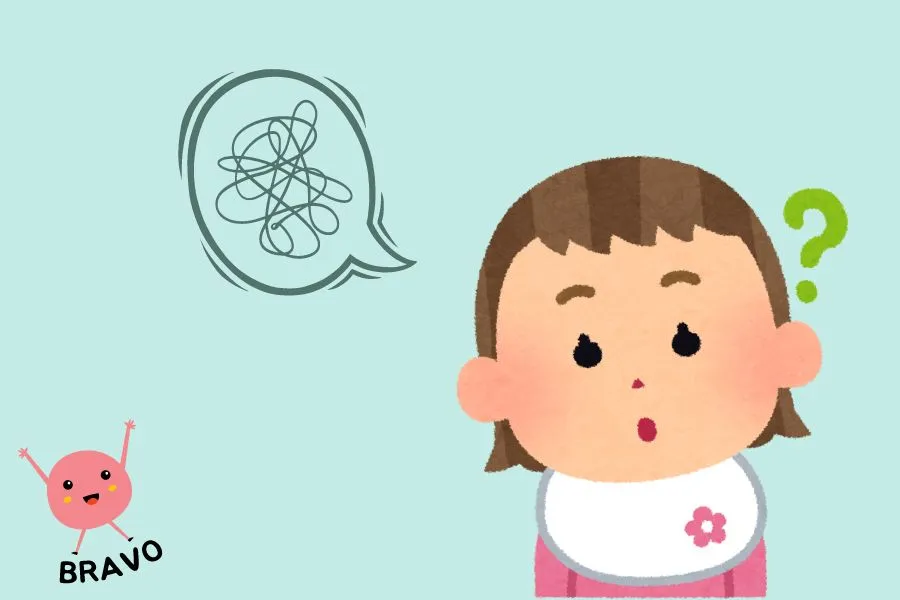
5. Keep calm
If your kids cannot meet your expectations at first, please do not make a fuss. If you do that, both you and your children will be hurt. You should give them some more time to try and make them feel supported. Then, when they finally do well, do not forget the reward.
6. Give praise
When your children behave well, you should not save positive words to let them know that they are doing things the right way. “Thank you”, or “Well-done”, just those simple phrases, are fine enough. But it will be better if you can explain why that behavior is good. They will remember and repeat it.

7. Stay away from bribes
Even in the most desperate situation, a reward should not be used as a bribe. For example, when your kid lies as a protest in the middle of the supermarket and asks for her desired toy set, you should not compromise with a solution: if you purchase that one, she will keep silent. Otherwise, she will understand that kind of behavior is still acceptable.
8. Not reward everything, reward what matter
Finally, if you make use of the reward system abundantly, your kids will be familiar with it. Then you will face situations, like you have your son to do cleaning chores, but he asks for 1 dollar.
The boundary may be very slender. You should select what you want to change, and set the reward system for your kids. Types of rewards should be considered carefully. For example, your kid helping with a table set for dinner deserves praise. It is unnecessary to buy him a toy.
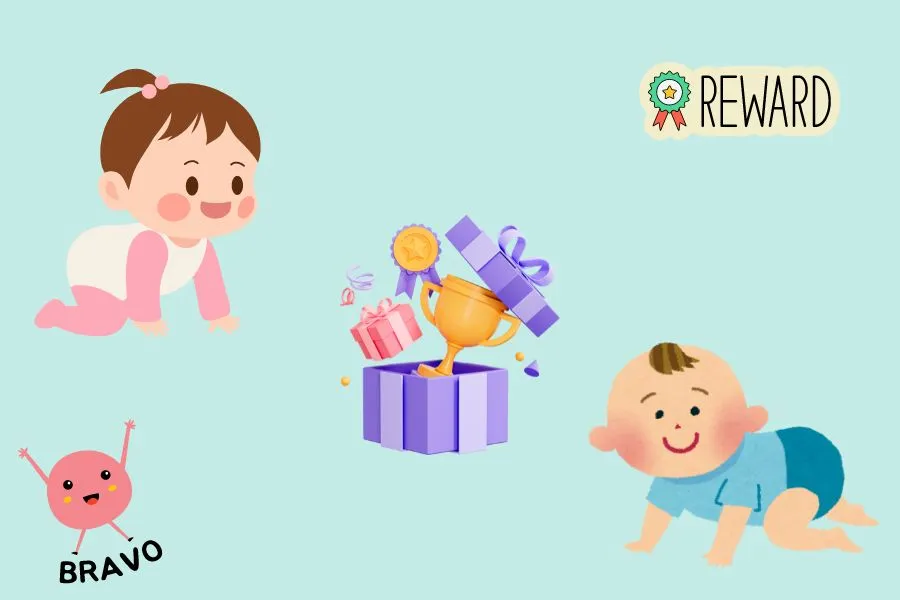
Common Mistakes Parents Make With Reward Systems
Even with the best intentions, parents sometimes stumble when implementing reward systems. Recognizing these pitfalls helps you avoid them and maintain an effective approach.
Over-rewarding basic expectations: Not every routine task needs a reward. Brushing teeth, getting dressed, or eating meals are expected behaviors that become habits through consistency rather than rewards. Save rewards for new behaviors you’re trying to establish or particularly challenging accomplishments. Otherwise, your toddler might expect payment for everything.
Using rewards as punishments: Never take away earned rewards as punishment for unrelated misbehavior. If your toddler earned a sticker for cleaning up toys but later had a tantrum, the sticker stays. Removing earned rewards teaches that achievements can be arbitrarily taken away, which destroys trust in the system and undermines motivation.
Setting unrealistic expectations: If your toddler needs to be perfect all day to earn one small reward, frustration will quickly replace motivation. Break larger goals into smaller, achievable steps. For example, instead of requiring a whole day without accidents during potty training, reward each successful use of the potty.
Forgetting to phase out rewards: The ultimate goal is for good behavior to become habit, not for your child to expect constant rewards. As behaviors become consistent, gradually reduce the frequency of rewards. Move from rewarding every time to sometimes, then occasionally, and finally just periodic positive acknowledgment. This transition helps internalize good habits.
FAQs
Most behaviors take 3-4 weeks to become habits with consistent reinforcement. Start with frequent rewards, then gradually reduce them as the behavior becomes routine. If your toddler maintains the behavior for two weeks without rewards, it’s likely becoming a natural habit.
Refresh the rewards periodically. What excited them last month might bore them now. Involve your toddler in choosing new rewards or change the format. Switch from stickers to stamps, or from a chart to a jar where they drop tokens. The novelty often reignites their enthusiasm.
While occasional treats are fine for special achievements, avoid making food the primary reward. This can create unhealthy relationships with eating and teach that food is a prize rather than fuel for their body. Focus on activities, privileges, and positive attention instead.
Conclusion
Being parents is never easy. You can not apply the success formulas of others to your kids, as each one is unique. You should know what can trigger their interest and motivation, the frequency and methods of rewards. Using a reward system with a toddler in the right way can enhance their development and the affection among family.
Last update: 01/24/2026

